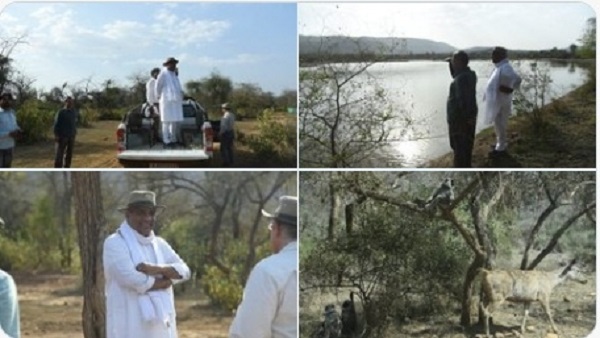
New Delhi, (Asian independent) Environment Minister Bhupender Yadav has recently visited Sariska Tiger Reserve for a meeting, when he also took a round of the Reserve. He was stunned to find a herd of Cheetal feeding on plastic.
Unfortunately, Sariska is not the exception; the problem of plastic litter is not restricted to it, but a widespread, pan India problem at almost all national parks, tiger reserves and wildlife sanctuaries.
Ahead of the ban on identified single use plastic (SUP) items, Yadav was reminded of that incident and said: “We will ensure that such plastic is not littered in our national parks or wildlife sanctuaries as plastic, especially micro-plastic has an adverse impact not just on humans but also on the animal world.”
The Centre has announced a total ban on identified SUP items from Friday and set up national and state level control rooms and formed special enforcement teams for checking illegal manufacture, import, stocking, distribution, sale and use of banned single use plastic items. The states and UTs have been asked to set up border checkpoints to stop inter-state movement of any banned items.
Director General (Forest) and Special Secretary in the Ministry of Environment, Forest and Climate Change, C.P. Goel, said: “We have been able to make all our zoos plastic free already. Some national parks that have a national highway or any major road passing through it, they witness more plastic litter. One experiment that is successful is the plastic recycling scheme at Amarabad Park near Hyderabad; the same model will be replicated in other national parks and wildlife sanctuaries.”
In other cases, where there is no national highway or even a regular busy road cutting across it, the Ministry is planning to have an arrangement to collect all kinds of plastic from the people entering that area.
“We will not even allow plastic bottles, either the visitors need to carry glass bottles or can avail of the facilities that we would provide,” Goel said.
The top official also said that the Ministry is promoting bamboo in a big way as an alternative to plastic made items. “Our research institutes have come up with a variety of bamboo products,” he added.







